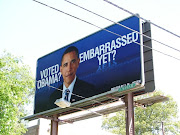July 8 (Bloomberg) -- Democratic presidential candidate Barack Obama is trying to claim the political center, following in the footsteps of previous nominees including Republican Ronald Reagan in 1980. Yet the Illinois senator has a higher hurdle than most: a consistently liberal voting record.
In recent weeks, Obama said he supports gun-ownership rights, backs legislation giving immunity to telephone companies that participated in an anti-terrorism surveillance program and would consider cutting corporate taxes. On July 3, he said he would ``continue to refine my policies'' on the Iraq War.
Obama built his candidacy on the support of his party's liberal base, which favors restrictions on guns and wiretapping, raising taxes for companies, and pulling U.S. forces from Iraq. As an Illinois state legislator, he voted against a law carving out self-defense exceptions to local handgun bans; as a U.S. senator, he opposed business tax cuts and extending warrantless eavesdropping, and backed tougher gun laws. On Iraq, he has long focused on ending the war and withdrawing troops.
The candidate is now trying to fend off Arizona Senator John McCain, the presumptive Republican nominee, who needs to try to ``unmask Obama as an old-style liberal in a flashy new costume,'' said Trent Duffy, a former aide to President George W. Bush and a partner at the Washington communications firm HDMK.
`Seeming Authenticity'
At the same time, changing positions may present risks by endangering one of Obama's biggest assets, his ``seeming authenticity,'' said Mark Corallo, a strategist who worked on Republican Fred Thompson's presidential bid.
Obama, 46, rejects the notion that he is trying to move to the center.
``I get tagged as being on the left and when I simply describe what have been my positions consistently, then suddenly people act surprised,'' Obama told reporters in Ohio on July 1. There haven't ``been substantial shifts,'' he said.
Gun control emerged as an issue last month after the Supreme Court struck down Washington's handgun ban. McCain, 71, quickly praised the decision.
Obama was on the defensive because of past support for more restrictive laws. In addition to the 2004 state vote on the self- defense bill, which critics said might eviscerate local handgun bans, Obama in 2005 voted as a U.S. senator to expand the types of banned ammunition and against a measure protecting gun makers and sellers from lawsuits.
`Common-Sense' Restrictions
On June 26, Obama said he has ``always believed'' in gun- ownership rights, though he supports ``common-sense'' restrictions. Washington's law ``overshot the runway,'' he said in an interview with Bloomberg Television that day.
On surveillance, Obama last year voted against expanding the wiretapping program for six months. Now, he backs a bill that would end lawsuits against telephone companies and allow surveillance to continue.
The new bill is a ``compromise'' reflecting the importance of getting ``that program in place,'' Obama said July 1.
Obama also faces questions on taxes. In 2006, he voted against extending write offs for small businesses and Bush's cuts to the capital-gains rates.
Campaigning June 9 in North Carolina, he assailed Bush's ``tax breaks for big corporations and wealthy CEOs.'' A week later, he told the Wall Street Journal that corporate tax rates could be reduced after eliminating loopholes.
Rape Case
Some of the Republican charges of flip-flopping are misplaced. Last month, Obama drew fire for denouncing a Supreme Court decision barring the death penalty for child rapists. Yet in his 2006 book, ``The Audacity of Hope,'' he wrote that some crimes are ``so heinous'' that capital punishment is justified.
As examples, Obama cited ``mass murder'' or ``the rape and murder of a child.'' On June 25, he told reporters that ``the rape of a small child, 6 or 8 years old, is a heinous crime.''
In other cases, the criticism may be tougher to deflect. On Iraq, Republicans seized on recent comments by the candidate and his staff as evidence that he might backtrack from his 16-month withdrawal plan. His foreign-policy adviser, Susan Rice, said July 1 on MSNBC that he would ``redeploy our forces responsibly, at a rate that our commanders say is safe and sustainable.''
Last week, Obama said he has consistently called for the U.S. to be as ``careful'' leaving Iraq as it was ``careless'' getting in. Yet his comment about how a trip to Iraq would allow him to ``refine'' his policies were assailed as evidence he was backpedaling.
Iraq War
``The hard-core left is willing to tolerate some of those shifts,'' Duffy said. Any change on Iraq, though, ``is a bridge too far.''
In 2005, his first full year in the U.S. Senate, Obama earned 100 percent ratings from the AFL-CIO labor federation and Americans for Democratic Action, according to Congressional Quarterly. Those ratings were 93 percent and 95 percent in 2006.
Obama also favored restoring habeas corpus rights to suspected terrorists, while opposing the confirmations of Supreme Court Justice Samuel Alito and Chief Justice John Roberts, and a constitutional amendment prohibiting flag burning.
Obama, who has campaigned as a politician who can bridge partisan divides, voted with his party 97 percent of the time last year, 96 percent the year before and 97 percent in 2005, according to Congressional Quarterly. McCain's ``party unity'' scores in the last three years were 90 percent, 76 percent and 84 percent; in 2001, the Republican supported his party just 67 percent of the time.
To contact the reporter on this story: Kristin Jensen in Washington at kjensen@bloomberg.net

Custom Search
News
Tuesday, July 08, 2008
Subscribe to:
Post Comments (Atom)










No comments:
Post a Comment